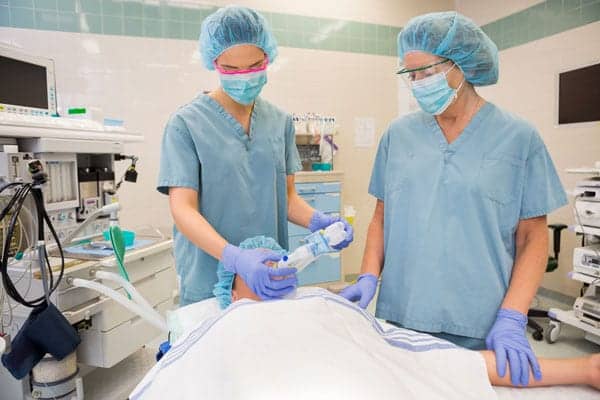The US Food and Drug Administration (FDA) has approved Ryanodex® (dantrolene sodium) for the treatment of malignant hyperthermia (MH), along with appropriate supportive measures. This new formulation of dantrolene sodium is expected to bring the crisis under control more rapidly and prevent severe complications from MH.
Ryanodex can be prepared and administered in less than 1 minute by a single healthcare practitioner.
Ryanodex is reformulated to improve performance in managing MH. The product enables anesthesiologists to deliver a therapeutic dose of dantrolene sodium in a much more expedient manner than currently possible with existing formulations of IV dantrolene sodium. Specifically, Ryanodex can be prepared and administered in less than 1 minute by a single healthcare practitioner. The FDA had designated Ryanodex as an orphan drug in August 2013. Manufacturer Eagle Pharmaceuticals Inc has been informed by the FDA that it will learn over the next 4 to 6 weeks if it has been granted the 7-year orphan drug market exclusivity.
What Is MH?
MH is an inherited and potentially fatal disorder triggered by certain anesthesia agents in genetically susceptible individuals. Fortunately, it is rare, occurring in an estimated 1 out of 2,000 people. MH crisis situations are triggered by commonly used general anesthetics and the paralyzing agent, succinylcholine, and results in a biochemical chain reaction response in the skeletal muscles of susceptible individuals.
General signs of MH crisis can include:
- Increased heart rate
- Greatly increased body metabolism
- Muscle rigidity
- Fever that may exceed 110°F along with muscle breakdown.
Without proper and prompt treatment, MH crisis mortality is extremely high.
Although efficacy of Ryanodex in treating MH in an established pig model has been demonstrated, the preparation has not yet been used to treat MH in humans, according to the Malignant Hyperthermia Association of the United States (MHAUS). Now that FDA approval for the treatment of MH by Ryanodex has been granted, MHAUS recommends that The North American Malignant Hyperthermia Registry Adverse Metabolic or Muscular Reaction to Anesthesia (AMRA) Report be utilized to report Ryanodex use. This will permit independent evaluation of its safety and efficacy in the treatment of human MH.
The North American Malignant Hyperthermia Registry of MHAUS has University of Pittsburgh IRB approval to receive AMRA reports. Submission of AMRA reports does not require patient consent because all data is gathered anonymously. AMRA reports may be downloaded from www.mhaus.org/registry.





